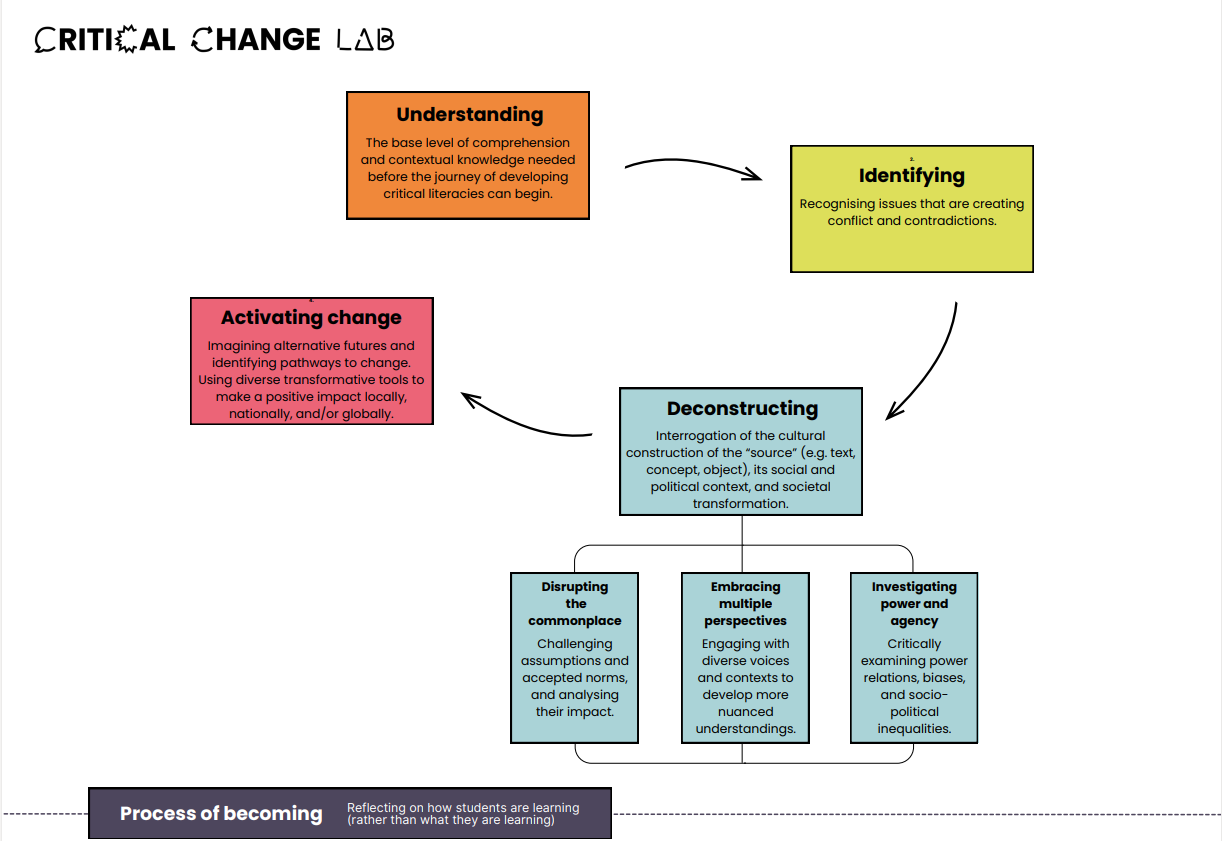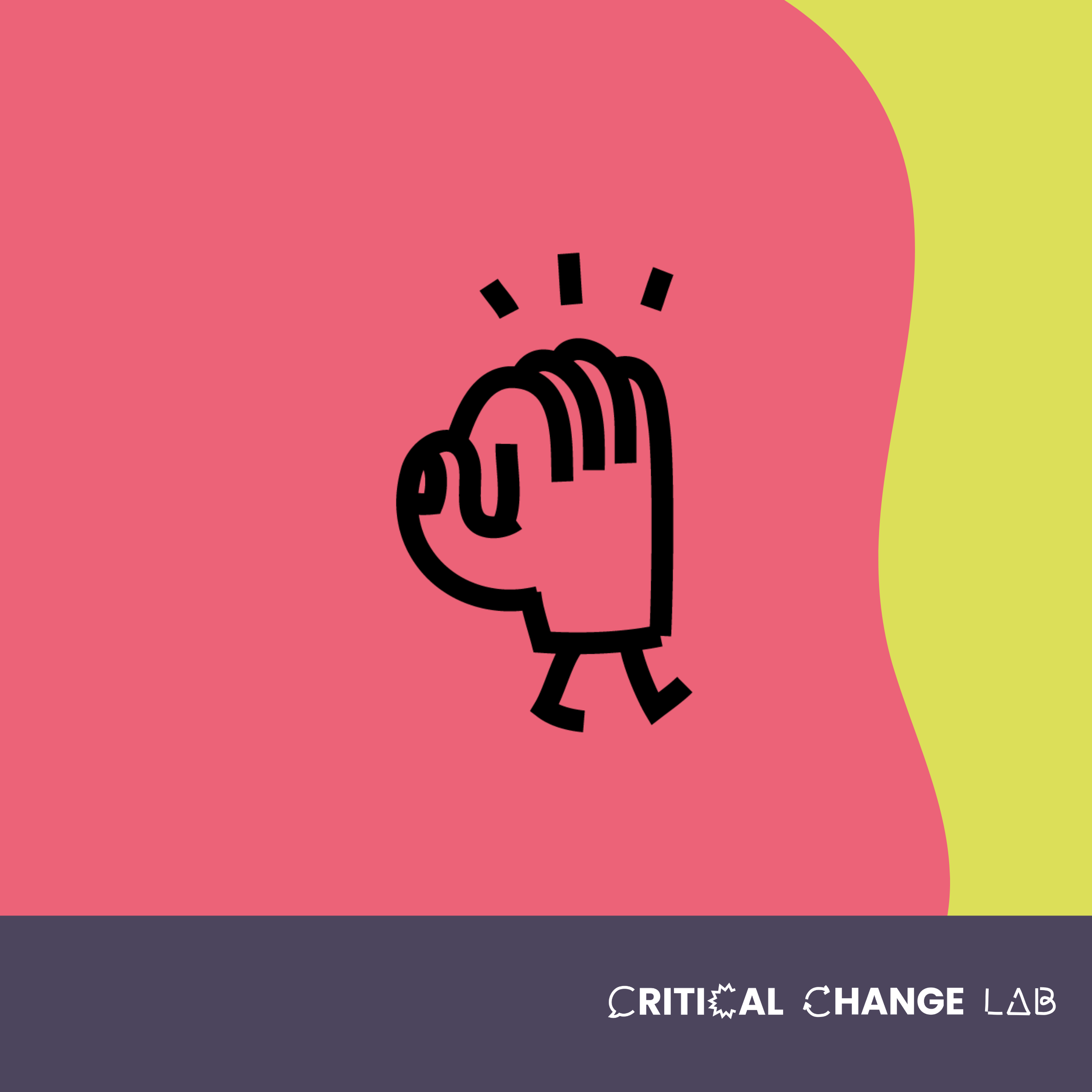Critical ChangeLab has released a new policy paper titled Policy Recommendations on Citizenship Education for Sustainable European Democracy, led by European Alternatives. The publication brings together three years of experimentation and learning into a practical blueprint for strengthening democracy through education at a time when Europe faces major geopolitical, technological, and ecological challenges.
Between 2022 and 2025, Critical ChangeLab implemented more than 80 Critical ChangeLabs with groups of learners aged 12 to 18 across 11 EU countries. Rather than starting from a fixed curriculum, the labs invited young people to identify the issues that mattered most in their daily lives—topics such as gender equality, online harms, climate anxiety, and food quality. Learners then moved through structured phases of onboarding, questioning, analysing, envisioning, acting, and reflecting.
The methodology was adapted from a workplace change model developed in Norway and bridges vocational, hands-on learning with conceptual exploration, helping learners and educators navigate change democratically. The result is a tested and adaptable framework for building democratic competences through co-creation, reflection, and action.
At the heart of the paper are four transformative concepts that reframe how Europe might approach civic and citizenship education.
Everyday Democracy
Everyday democracy reminds us that democracy is lived not only through elections and institutions but also in daily relationships at school, at work, in families, on the street, and online. This perspective encourages educators to focus as much on how learning happens as on what content is taught. Power relations, participation, and responsibility become part of the educational process itself.
Promoting everyday democracy means paying attention to how learners collaborate, how teachers share authority, and how educational spaces model respect, inclusion, and fairness. Democracy is thus not a distant concept but something experienced and practiced every day.
Critical Consciousness
Critical consciousness goes beyond the various kinds of “literacy” that have dominated educational policy – media literacy, digital literacy, futures literacy – to cultivate the ability to recognise power dynamics and act against domination and injustice.
Learners are supported not only to understand the world critically but also to intervene in it, individually and collectively. This approach builds on the ideas of Paulo Freire, aiming to develop awareness, responsibility, and the courage to act. In the Critical ChangeLab methodology, literacy and knowledge acquisition are embedded within processes of reflection and action for change.
Participative Democratic Health
Participative democratic health extends the idea of democracy audits beyond governments and parliaments to the institutions where young people spend much of their lives, especially schools.
Critical ChangeLab developed a Democracy Health Questionnaire that allows learners, teachers, and administrators to evaluate together how democratic their institutions are and to plan improvements over time. This approach not only strengthens democratic culture inside schools but also teaches young people that democracy depends on ongoing participation, reflection, and renewal.
Creative Technological Environments
Democratic education today must include creative and critical engagement with technology. This means providing space for making, coding, designing, and experimenting, so that young people can shape the technological and digital systems they inhabit.
The paper argues for a shift from STEM to STEAM, bringing the arts into the centre of European skills and innovation policy. Creativity and imagination are essential to envisioning alternative futures and ensuring that technology serves democratic, inclusive, and sustainable purposes rather than reinforcing domination or exclusion.

From concepts to action
These ideas translate into ten concrete policy recommendations directed at the European Union, national ministries, schools, and educators.
At EU level, the paper calls for connecting “macro-democracy” topics such as elections and rule of law with “everyday democracy,” involving young people in co-designing technological policies, expanding Rule of Law reporting through participatory youth input, embedding civic education into participatory processes such as citizens’ panels and participatory budgeting, and reforming the European Citizens’ Initiative to ensure real follow-up. It also urges the European Commission to broaden its Union of Skills agenda from STEM to STEAM, ensuring that arts and creativity are recognised as central to the democratic and technological competences of the future.
For national stakeholders, the report recommends bringing democracy education into every part of the curriculum—not as a separate subject but as a method and value present across disciplines. Teachers should be trained to engage confidently with social and political topics, strengthening young people’s sense of agency and responsibility.
For schools, the report proposes assessing the democratic health of their own institutions in a participatory way. For educators, it calls for co-creative learning environments that build trust with learners and encourage collective reflection and action.
A call for integrated European action
The paper situates these proposals within the current EU policy landscape. Recent initiatives such as the Citizenship, Equality, Rights and Values programme, Erasmus+ priorities on democratic participation, and the European Solidarity Corps have expanded opportunities for civic engagement. Yet major gaps remain for younger learners and for a more holistic vision of citizenship education.
The European Commission’s new initiatives, including the Democracy Shield and the Union of Skills, show growing awareness of these issues. However, Critical ChangeLab argues that they will only succeed if grounded in everyday democratic practice, youth co-creation, and creative, value-based education.
Learning from practice
The publication also shares examples from the labs implemented across Europe. In Barcelona, learners discussing gender equality evolved their debate into the theme of affective responsibility—how to behave in ways that do not harm others. This shift from slogans to deeper ethical reflection showed how the methodology supports critical and collective thinking.
In another case, students investigating declining food quality used a “futures triangle” to analyse the weight of the past, the push of the present, and the pull of possible futures, identifying political and commercial forces that shape what they eat. These exercises demonstrate how critical inquiry can lead to realistic and democratic action.
The report also recognises the challenges. When technology enters the classroom, instrumental and competitive attitudes often dominate. This is why the inclusion of arts and creative practice is so important: imagination, empathy, and collaboration are essential democratic skills in any technological environment.
Towards a resilient European democracy
The main message of the paper is that defending and renewing European democracy cannot rely only on protecting elections or combating disinformation. It must be built where democracy is lived every day—in classrooms, communities, and creative spaces. It depends on young people who can analyse systems of power, act responsibly, and imagine alternatives.
By centering youth agency, everyday democracy, and critical consciousness, Critical ChangeLab offers EU and national policymakers a grounded and transformative pathway. If these recommendations are implemented, they will not only make civic education more relevant and inclusive but also help make European democracy more resilient and sustainable for the future.
Read the full policy paper:
Policy Recommendations on Citizenship Education for Sustainable European Democracy
Join our newsletter to continue to be updated on what we’re up to at #CriticalChangeLab. We’ll always keep it interesting, and only send you updates for as long as you want us to.
